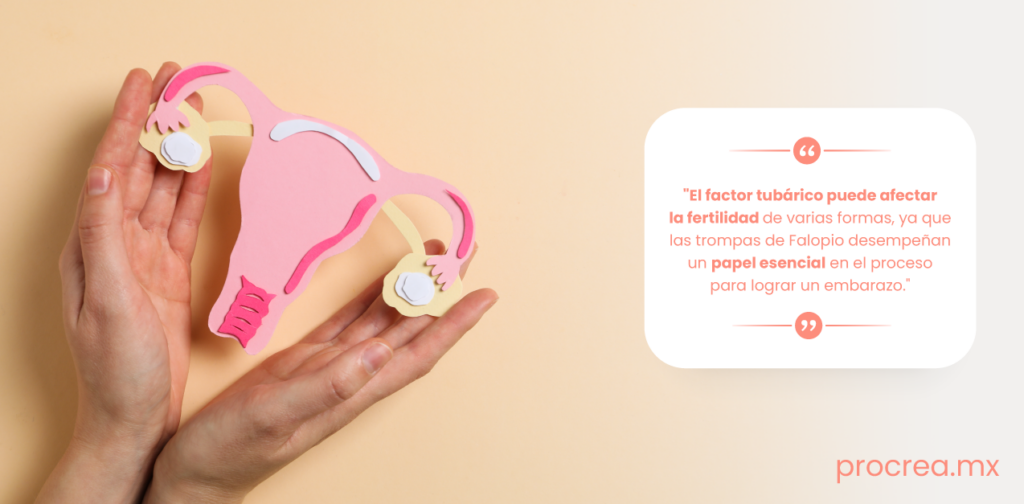When it comes to female fertilityseveral factors can influence a woman's ability to conceive. One of the most important and common factors is the tubal factor.In this blog, we will explain what a tubal factor is and how it can affect a woman's fertility.
What is tubal factor and how is it diagnosed?
- tubal factor refers to any condition or problem that affects the fallopian tubes in the female reproductive system. The fallopian tubes are two thin, flexible structures that extend from the ovaries to the uterus. They play a crucial role in female fertilityas they are responsible for transporting the eggs released by the ovaries to the uterus.
There are several conditions associated with the tubal factor that can affect fertility. These include total or partial blockage of the tubes, inflammation, ectopic pregnancy, and tubal dysfunction. To diagnose a tubal factor medical tests such as hysterosalpingography (HSG), laparoscopy, or transvaginal ultrasound are conducted.
How Does tubal factor Affects Fertility:
- tubal factor can affect fertility in various ways due to the important role of the fallopian tubes in the conception process. Here are some of the ways it can impact fertility:
- Difficulty transporting eggs.
- Interference in sperm uptake.
- Risk of ectopic pregnancy.
The impact of tubal factor on fertility depends on the severity and cause of the problem, so it is important to have a proper diagnosis.
Achieve your pregnancy even with a tubal factor
Achieving pregnancy with tubal abnormalities is challenging, but there are options and treatments available that can increase the chances of success. One option to consider is In Vitro Fertilization (IVF) which is an Assisted Reproduction technique in which the eggs are extracted from the ovaries and fertilized in a laboratory. After fertilization, the embryos are transferred to the uterus. IVF is often used in cases of tubal factor,as it bypasses the need for the eggs to pass through the fallopian tubes.
The intrauterine insemination where sperm are placed directly into the uterus through a catheter. This method can be used if the fallopian tubes are partially blocked. Insemination maximizes the chances of the sperm finding the egg and fertilizing it.
If any alteration in the fallopian tubes is suspected, it is essential to consult a fertility specialist, An accurate diagnosis and appropriate treatment can help overcome difficulties and increase the chances of achieving pregnancy.
At Procreawe understand the importance and sensitivity of this issue. Our team of Assisted Reproduction specialists is committed to providing personalized treatment options for those facing this challenge. If you are seeking help and advice to achieve a pregnancy, usand we will accompany you throughout your process.















